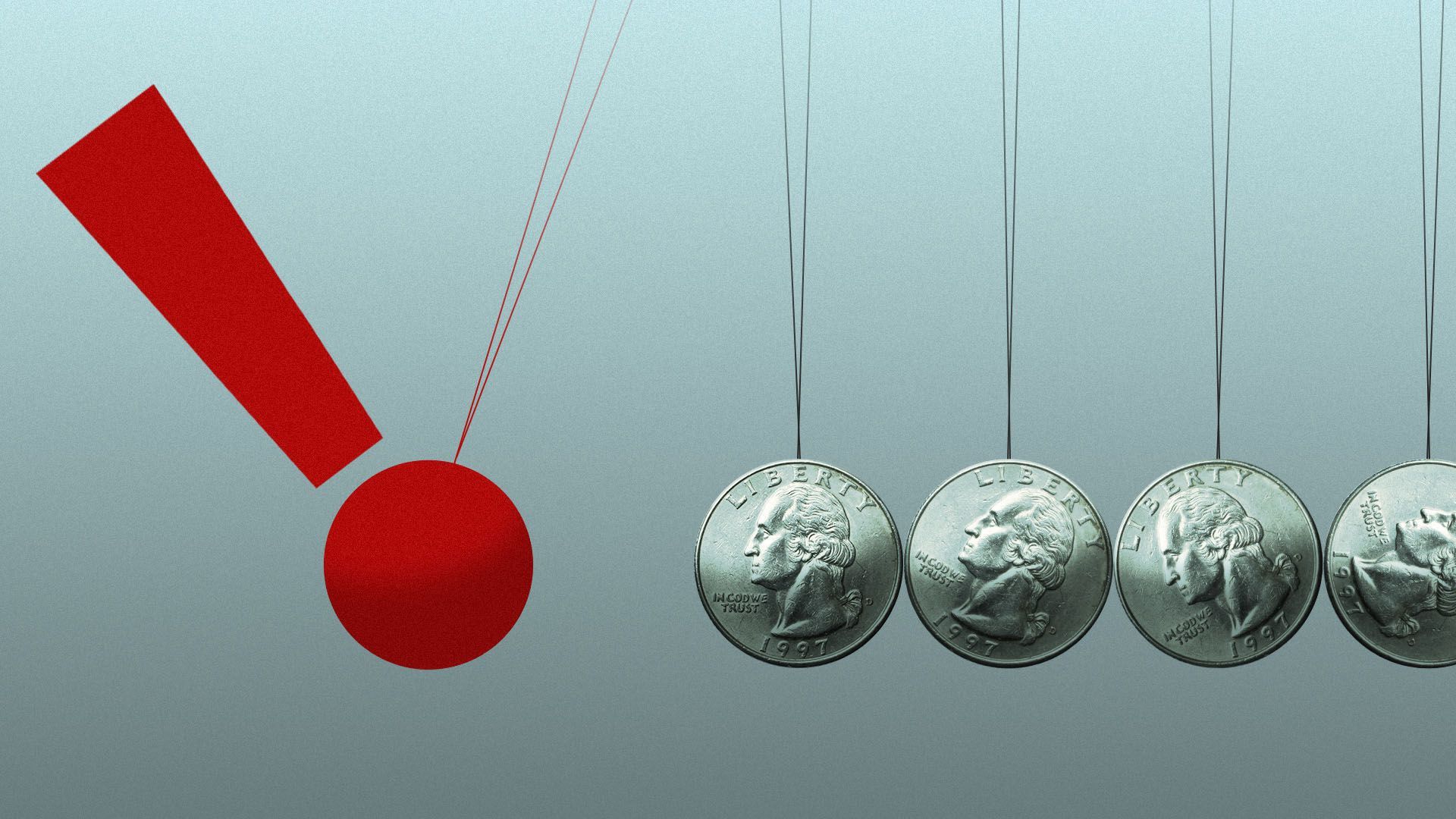Why businesses say no to free money
Add Axios as your preferred source to
see more of our stories on Google.

Illustration: Sarah Grillo/Axios
Most people should and will accept free money from the government whenever it's offered. The CARES Act was designed to funnel trillions of dollars into workers' bank account and was written with the expectation that few people or businesses would say no to such a gift. Then the messaging changed.
Why it matters: Politicians lost no time in ratifying the anger and resentment aimed at some of the recipients of government-backed funds. The result has been a slew of businesses voluntarily rejecting government assistance.
Driving the news: The New York Times' Neil Irwin noted this week that "with stunning speed, the political conversation has pivoted from whatever-it-takes determination toward a different feeling: outrage."
The big picture: Legislation tends to be gamed, especially when it is written in a hurry. The government's Paycheck Protection Program, in particular, was the focus of a lot of anger after it became clear that relatively large and well-connected companies had managed to receive funding even as many very small — and even needier — businesses had been shut out of the first round.
- By the numbers: In the initial tranche of the PPP, 44.5% of the money lent out — some $152 billion — went to businesses requesting more than $1 million. In the first week of the second round, by contrast, only 27% of the money went out in the form of seven-figure checks.
- The average loan amount in the second round is $79,000, down sharply from $206,000 in the first round.
Between the lines: To some extent, the drop-off in average loan sizes is a function of the bigger recipients' ability to receive their money in the first round. But it's also a function of the fact that bigger businesses are listening to politicians, including Treasury Secretary Steven Mnuchin.
- What they're saying: Mnuchin announced last week that the government would carefully scrutinize every PPP loan over $2 million before agreeing to forgive the money. What's more, he said, those businesses could face criminal liability. He concluded: "I encourage everybody to look at this and pay back these loans now, so we can recycle the money, if you made a mistake.”
- No business wants that kind of government scrutiny, even if they are sure they qualify for the money.
- It's easy for members of Congress to summon CEOs into public hearings designed to generate maximum negative publicity. If a CEO doesn't accept the money, she effectively avoids any risk of finding herself in that position.
For the record: Four of the top five businesses on the TrumpBailouts.org list of big recipients of PPP funds, put together by an anti-corruption watchdog group, have subsequently announced that they will be returning the money. Axios has done likewise.
- Such announcements often come with a statement that "we have decided to return the loan with the hope it finds a home where it is more urgently needed," or words to that effect.
- There's plenty of money left in the PPP coffers, however. The second $310 billion tranche of PPP money had more than $126 billion remaining at the end of Wednesday, with new loans in the second week so far amounting to just $7.8 billion. Fears that the money would be gone on Day One did not come true.
The bottom line: Jawboning works. Even when businesses are legally entitled to bailout funds, they will often avoid taking that money when faced with political or popular opprobrium.
Go deeper: How many big companies got PPP loans
